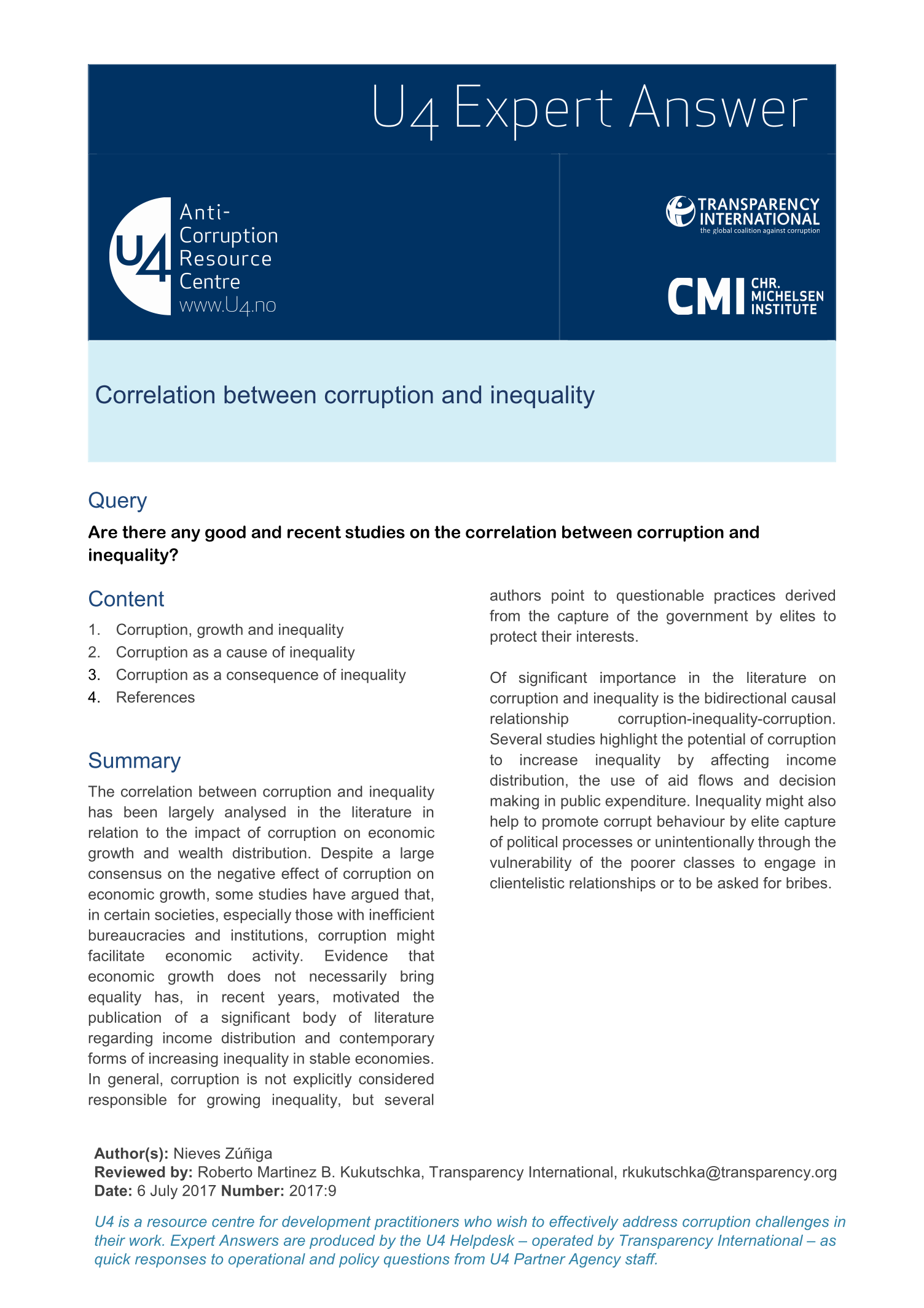U4 Helpdesk Answer
Correlation between corruption and inequality
The correlation between corruption and inequality has been largely analysed in the literature in relation to the impact of corruption on economic growth and wealth distribution. Despite a large consensus on the negative effect of corruption on economic growth, some studies have argues that, in certain societies, especially those with inefficient bureaucracies and institutions, corruption might facilitate economic activity. Evidence that economic growth does not necessarily bring equality has, in recent years, motivated the publication of a significant body of literature regarding income distribution and contemporary forms of increasing inequality in stable economies. In general, corruption is not explicitly considered responsible for growing inequality, but several authors point to questionable practices derived from the capture of the government by elites to protect their interests.
Of significant importance in the literature on corruption and inequality is the bidirectional causal relationship corruption-inequality-corruption. Several studies highlight the potential of corruption to increase inequality by affecting income distribution, the use of aid flows and decision making in public expenditure. Inequality might also help to promote corrupt behaviour by elite capture of political processes or unintentionally through the vulnerability of the poorer classes to engage in clientelistic relationships or to be asked for bribes.

Cite this publication
Zúñiga, N. 2017. Correlation between corruption and inequality. Bergen: U4 Anti-Corruption Resource Centre, Chr. Michelsen Institute (U4 Helpdesk Answer 2017:9)
Disclaimer
All views in this text are the author(s)’, and may differ from the U4 partner agencies’ policies.
This work is licenced under a Creative Commons Attribution-NonCommercial-NoDerivatives 4.0 International licence (CC BY-NC-ND 4.0)
